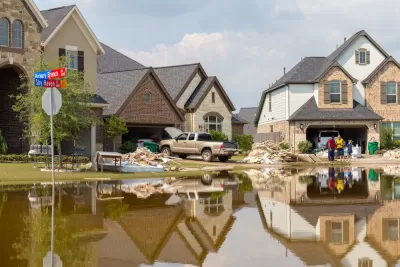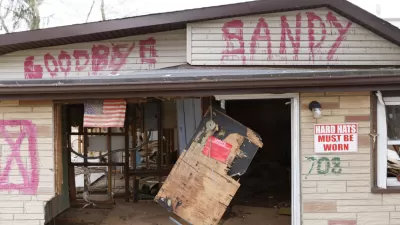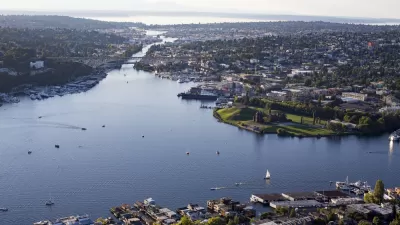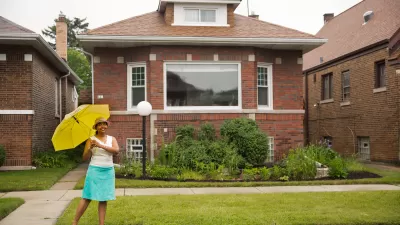The Rockefeller Foundation has cited costs and a new strategic direction to explain why it abruptly cut off the program this year. While the work may live on in some form, the move underscores the risks of relying on private funding.

"Established in 2013 by the Rockefeller Foundation in the wake of Hurricane Katrina and Superstorm Sandy, 100 Resilient Cities was born out of the idea that local governments needed help planning for disasters and combating persistent social maladies," Laura Bliss writes. With Rockefeller writing the checks, it grew into a groundbreaking effort to embed resilience into the conceptual vocabulary of local governments.
But this spring, the foundation decided to wind the program down. "For local governments, the whiplash may be a reminder of the risks of relying of private dollars to create public policies," Bliss writes.
Some elements of Rockefeller's resilience work may survive. The Rockefeller Foundation is helping bankroll the Adrienne Arsht-Rockefeller Foundation Resilience Center, for example, and it has "confirmed that it may keep some elements of the 100 Resilient Cities program alive."
As for why Rockefeller pulled the plug, the rationale partly has to do with cost: "while academic research supports the theory of building urban resilience through institutional change, it was challenging to measure short-term results directed by the program." Rockefeller's president Raj Shah also wants to steer the foundation in a different direction, prioritizing measurable outcomes in areas like global health.
100 Resilient Cities' president, Michael Berkowitz, has "told staff that he and a group of soon-to-be-former 100RC officers were preparing to start a new nonprofit with the mission of helping cities implement resilience projects." A new venture would work on a project-by-project basis, Bliss writes, rather than activating a network of cities. And it will draw on multiple funding sources. A formal announcement is expected this July.
FULL STORY: The Rise, Fall, and Possible Rebirth of 100 Resilient Cities

Study: Maui’s Plan to Convert Vacation Rentals to Long-Term Housing Could Cause Nearly $1 Billion Economic Loss
The plan would reduce visitor accommodation by 25,% resulting in 1,900 jobs lost.

North Texas Transit Leaders Tout Benefits of TOD for Growing Region
At a summit focused on transit-oriented development, policymakers discussed how North Texas’ expanded light rail system can serve as a tool for economic growth.

Using Old Oil and Gas Wells for Green Energy Storage
Penn State researchers have found that repurposing abandoned oil and gas wells for geothermal-assisted compressed-air energy storage can boost efficiency, reduce environmental risks, and support clean energy and job transitions.

Private Donations Propel Early Restoration of Palisades Playground
Los Angeles has secured over $1.3 million in private funding to restore the Pacific Palisades playground months ahead of schedule, creating a modern, accessible space that supports community healing after recent wildfires.

From Blight to Benefit: Early Results From California’s Equitable Cleanup Program
The Equitable Community Revitalization Grant (ECRG) program is reshaping brownfield redevelopment by prioritizing projects in low-income and environmental justice communities, emphasizing equity, transparency, and community benefits.

Planting Relief: Tackling Las Vegas Heat One Tree at a Time
Nevada Plants, a Las Vegas-based nonprofit, is combating the city’s extreme urban heat by giving away trees to residents in underserved neighborhoods, promoting shade, sustainability, and community health.
Urban Design for Planners 1: Software Tools
This six-course series explores essential urban design concepts using open source software and equips planners with the tools they need to participate fully in the urban design process.
Planning for Universal Design
Learn the tools for implementing Universal Design in planning regulations.
Ascent Environmental
Borough of Carlisle
Institute for Housing and Urban Development Studies (IHS)
City of Grandview
Harvard GSD Executive Education
Toledo-Lucas County Plan Commissions
Salt Lake City
NYU Wagner Graduate School of Public Service





























